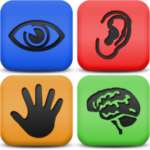

Purpose: Accessibility issues apply to all alcoholics who have difficulties participating in Alcoholics Anonymous, whether those difficulties are mental, physical, geographic, cultural, ethnic, spiritual, or emotional. While there are no special alcoholics, there are alcoholics who face additional personal barriers to accessing the A.A. message. For the purpose of these Guidelines in defining the accessibility issues that many alcoholics face, we refer primarily to persons who have visual and auditory challenges, those who are housebound or chronically ill, those who are living with the effects of brain damage or stroke, and many others who may have less visible challenges.
Accessibilities Committees: Some A.A. entities are attempting to meet these diverse needs by forming Accessibilities Committees. In some localities committees name themselves according to the particular need addressed, such as “Homebound Committee.” Members of Accessibilities Committees often explore, develop and offer resources to make the A.A. message and participation in our program available to everyone who reaches out for it. A G.S.O. staff member who serves on the Accessibilities assignment, is available as a resource to share Accessibilities experience and to answer questions from local Accessibilities Committees.
In the interests of good communication and working together, Accessibilities Committees are encouraged to keep their area committees and local central/intergroup offices informed of their activities. It is also helpful to work closely with committees handling Public Information and Cooperation With the Professional Community in terms of keeping the public and appropriate agencies informed about A.A. being accessible to alcoholics with diverse needs.
— Taken from the A.A. Guidelines on Accessibility for All Alcoholics from N.Y.
- Online Meetings with ASL link:
https://aa-intergroup.org/meetings?types=ASL
- International Online Meetings for Deaf Alcoholics (provided by Norma A at centexdeafintergroup.org)